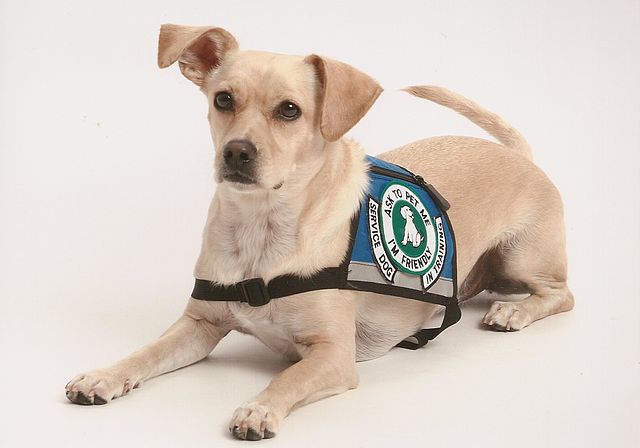Delta Airlines Lawsuit is a Cautionary Tale for Emotional Support Animals
Marlin Jackson has filed suit against Delta and Ronald Mundy Jr. after the latter’s emotional support dog allegedly mauled Jackson’s face in June 2017. Mr. Jackson was seated in a window seat of his flight while Mundy and the dog were in the middle seat next to him. The plane was scheduled to travel from Atlanta to San Diego.
Mundy’s dog was sitting in his lap and was growling at Jackson. The lawsuit claims that Jackson asked Mundy Jr. twice if the dog was safe. Mundy Jr. assured him both times that his emotional support dog was safe. The dog allegedly lunged at Jackson without warning, pinning him against the window and biting his face multiple times.
The allegedly attacked scarring Jackson’s face and left Jackson bleeding “so profusely that the entire row of seats had to be removed from the airplane.†The attack was interrupted when the dog was pulled off Jackson, but the animal broke free and attacked Jackson’s face again. Jackson claims that Delta was negligent in verifying whether the dog was trained or met the requirements of a service animal prior to letting it on board.
Jackson is suing for severe physical pain and emotional distress and to recover the substantial medical bills he has incurred for his twenty-eight facial stitches. He may require plastic surgery in the future, though he is currently using a cream to heal the scars.
Jackson waited two years to bring suit because his attorneys wanted to know what his full medical bills would be before filing his complaint. The statute of limitations for negligence in Georgia is two years.
 How to Legally Have an Emotional Support Animal
How to Legally Have an Emotional Support Animal
Both the owner and the dog must be qualified before the owner can legally claim to have an emotional support dog. The owner must be an active patient of a licensed mental health professional and the mental health professional must verify in writing that the owner has a recognized mental or emotional disorder, that the owner’s life is limited by the disorder, and that the emotional support animal is a form of necessary treatment. Such disabilities may include post-traumatic stress order, so veterans are common support dog owners.
The requirements for support dogs are much looser. Support dogs can be any breed or age. Unlike service dogs, support dogs do not require special training as their purpose is emotional support rather than to act as a guide or an aide.
What Accommodations are Available for Support Animals?
Emotional support animals can qualify as a disability accommodation. As a result, support animals are legally exempt from many rules or regulations that forbid pets provided that the owner can establish that he or she is disabled and the support animal is necessary for him or her to travel.
However, accommodations must be reasonable and cannot impose an undue hardship on those making the accommodation. The request should be in writing and should detail how the emotional support animal will support you. The owner is responsible for taking care of the support animal, including feeding and cleaning after it.
The support animal cannot disrupt the airline, though reasonable compromises are expected. For instance, if other customers are allergic to dogs, other solutions should be considered before travel is denied. Alternative solutions could include separate seating for the owner and animal away from the allergic passengers.
New Airline Requirements for Support Animals
After Jackson’s attack, airlines changed their rules regarding support animals. Many airlines now require confirmation that support animals have taken their rabies and distemper vaccinations, confirmation that the animal has been trained and require the veterinarian’s name and license number. The support animal need not be specifically trained to be a guide animal, but it must be behaviorally trained so that it obeys commands and doesn’t create a mess on the plane. Airlines will demand documentation that all requirements are met.
These new requirements are on top of existing regulations regarding seating for support animals. Airlines generally require support animals to either sit on their owner’s lap or on the floor in front of their owner for the duration of the flight. Support animals are generally not allowed in the aisle or to have a seat of their own. They may also be banned from flights that are longer than eight hours.
Most airlines have banned the following animals: dirty animals or animals that smell, any animal with hooves or tusks, snakes, spiders, rodents, insects, reptiles, non-household animals such as birds of prey, and pit bulls.


Comments
I think people have taken emotional support animals a little to far. For other passengers on a flight do they really want to be bothered by having someone with a dog or worse on a flight? With the troubles everyone is already having with coronavirus and the the airports in Chicago it is not really worth the hassle even if there are extra seats available.